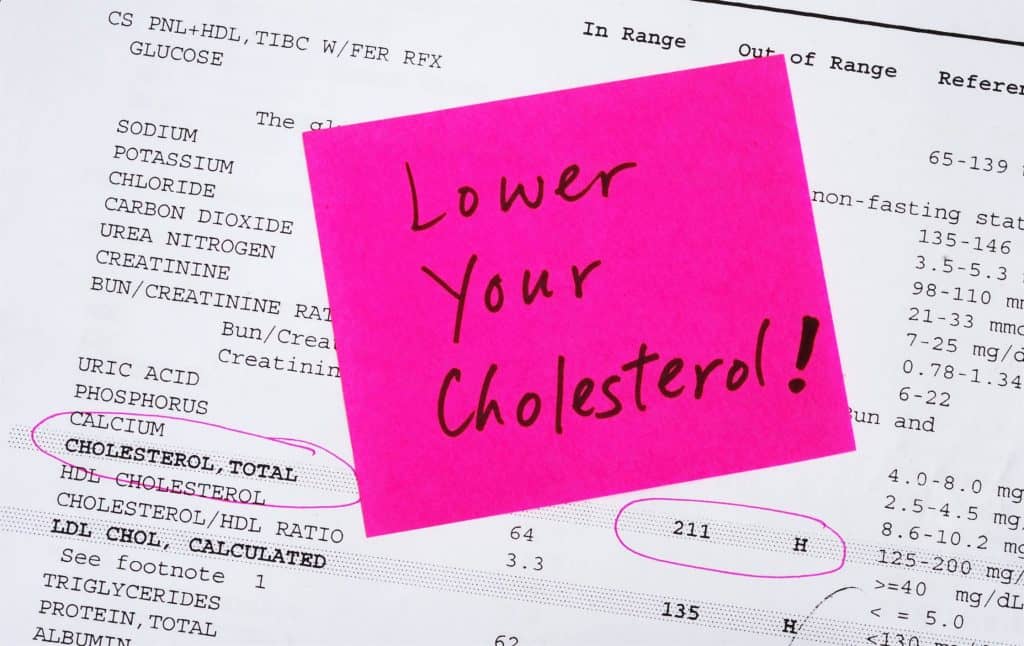
High cholesterol is a condition which occurs when too much cholesterol begins to form in your arteries. When this occurs, fatty deposits build up in your blood vessels, which can cause arteries to clog. Clogged arteries mean the heart has to work harder to pump blood, resulting in an increased risk of blood clots, leading to chest pain, heart attack and stroke. As we age, our risk of developing high cholesterol increases, though middle-age folks tend to have higher risk than seniors in Canada. Overall, 39% of Canadians had unhealthy levels of cholesterol between 2009-2011. Fortunately, lifestyle changes can be made in order to decrease your cholesterol levels.
Those who have been following the blog for some time now may have noticed some common trends in the lifestyle changes that should be made, and lowering cholesterol is no exception to the general rules of diet, exercise, medication and stress-reduction. Medications can be prescribed by your physician in order to lower your cholesterol levels, but they are most effective in conjunction with other lifestyle changes.
Your diet is a key player in high cholesterol levels, as what you eat is where the substance comes from. Cholesterol is key to many biological processes, as it makes up part of your cell membranes. You may have heard of good and bad cholesterol; they are known as high-density lipoproteins (HDL) and low-density lipoproteins (LDL) respectively. You want to eat foods that won’t increase your LDL; that means most saturated and all trans fats should be avoided. Other fatty acids, like Omega-3, won’t increase your LDL, so they can be consumed quite safely. Full fat dairies, fatty meats, margarine and other high saturated and trans fat foods should be avoided. Fish, whole grains, fruits and whey proteins should be consumed with gusto.
Exercise helps your body increase its level of HDL; unlikely LDL, the higher your HDL levels, the better. You might wonder why exercise affects your cholesterol types; that’s because cholesterol is actually synthesized by your body, so your body’s processes and overall health affect it’s synthesis. 30 minutes of exercise 5 times a week, including high intensity aerobic exercise, can help you make healthier cholesterol. As with any lifestyle changes in response to a medical condition, consult with your doctor before engaging in strenuous activity.
A quick note here; when you’re overweight, you’re more likely to have high cholesterol. Exercise and diet combined can help you bring your weight down to a healthy level.
As always, hedonism is a contributor to this condition; for regular blog readers, sorry to keep reminding you that drinking and smoking are fun but unhealthy. Stop smoking, as it will increase your overall cardiovascular health. Drinking, interestingly, might actually increase HDL, but only in moderation – the studies aren’t conclusive.
Lowering stress can help your whole body work better, so if these lifestyle changes seem intimidating, or if activities of daily living are becoming burdensome, consider asking for help; trustful private home care services can help you live with less stress.

